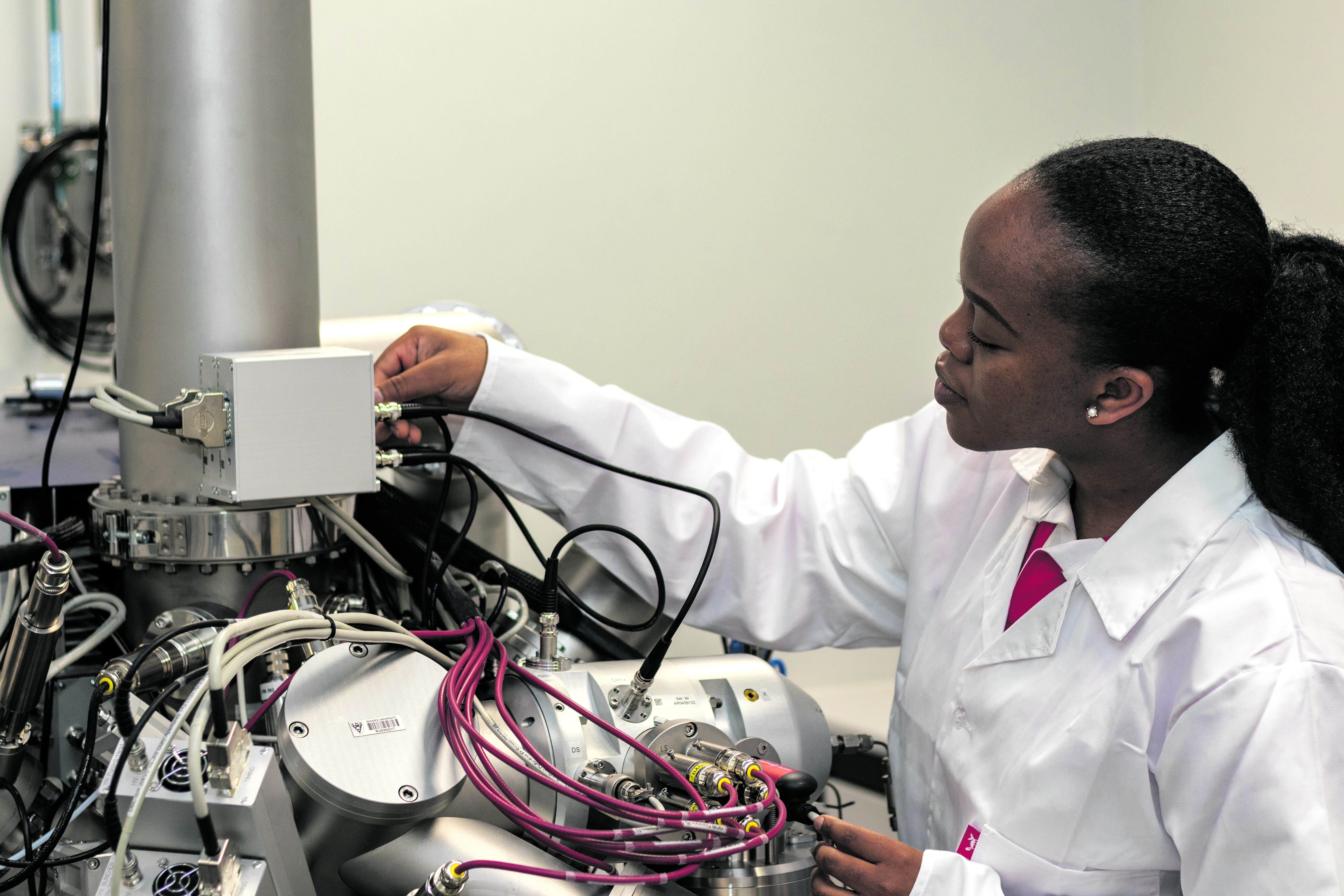‘I won’t be here forever, but as long as I am I will multiply excellence,” says Professor Tebello Nyokong, the woman leading the charge on the African continent to develop innovative nanotechnology, including non-invasive alternatives to chemotherapy.
Nanotechnology is a scientific field that focuses on designing and manufacturing minute devices and structures on the scale of atoms.
The first institute for nanotechnology in Africa was recently opened at Rhodes University and named after Nyokong in recognition of her distinguished career.
The world-renowned South African researcher donated R3.5-million – the proceeds of invested prize money from various awards – to the institute. This is for bursaries to ensure the continent’s brightest minds join the search for solutions to the world’s biggest problems, including clean water, cancer treatments and disease detection technology.
The university’s vice-chancellor, Professor Sizwe Mabizela, described the institute as a “one-stop shop for innovation” and the first of its kind on the continent.
“The Nyokong Institute will continue to build on the formidable intellectual power and global networks developed over the years, shaping the future of African science,” he said.
Mabizela said top-rated researchers from Japan, Canada and Brazil have spent time with Nyokong over the years.
“Students no longer have to leave the African continent to receive the best education in the world,” he added.
 Professor Tebello Nyokong speaking at the opening ceremony. (Photo: Supplied)
Professor Tebello Nyokong speaking at the opening ceremony. (Photo: Supplied)
Celebrating excellence
Nyokong is an honorary fellow of the Royal Society of Chemistry and a fellow of the Royal Society. She serves at the Pontifical Academy of Science, has six honorary degrees – three from international universities – and is the recipient of the Order of Mapungubwe in Bronze for her outstanding scientific contributions.
She has supervised 71 PhDs and 64 master’s graduates, and has written four books and 1,000 journal articles.
The researcher is currently looking into a new cancer diagnosis and treatment methodology called photodynamic therapy, an alternative to chemotherapy.
Read more: Africa could lead the way in precision medicine
The creation of the institute was the culmination of a 20-year journey for her, after a group in the Department of Chemistry broke away to study nanotechnology.
In 2007, that research group formed the basis for the Department of Science and Technology and Mintek Nanotechnology Innovation Centre. This had a special focus on health-related research. Later, the university upgraded the centre to a full institute, making it a priority project.
 Professor Tebello Nyokong (centre) at the sod-turning ceremony for the new institute. (Photo: Supplied)
Professor Tebello Nyokong (centre) at the sod-turning ceremony for the new institute. (Photo: Supplied)
The sod-turning ceremony for the new building to house the institute took place in 2022, and it was subsequently officially named after Nyokong.
Read more: Hope for Hartbeespoort Dam water quality as new ‘nanobubble’ technology starts to bite
During the opening of the new institute Nyokong said the 160 PhD students who will be working there were the true innovators. “They educate me,” she said.
Research at the institute will focus on solving modern-day problems, including developing nanomaterials for drug delivery, water purification systems, sensors for detecting diseases and outbreaks and non-invasive alternatives to chemotherapy.
According to the university, the sensitive equipment the scientists needed had to be moved with great care. A helicopter was used to bring some of it to Makhanda, where international experts installed it.
Dr Gugu Moche of the National Research Foundation said the institute had the potential to “enhance South Africa’s research capabilities and explore Nobel frontiers in technology”. DM
This story first appeared in our weekly Daily Maverick 168 newspaper, which is available countrywide for R35.





 Professor Tebello Nyokong (centre) at the sod-turning ceremony for the new institute. (Photo: Supplied)
Professor Tebello Nyokong (centre) at the sod-turning ceremony for the new institute. (Photo: Supplied) 